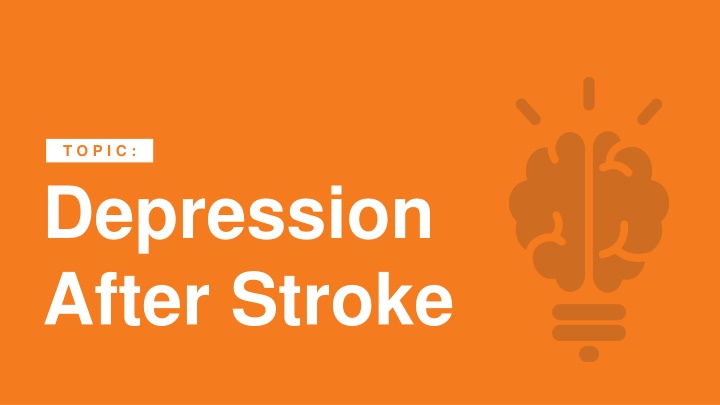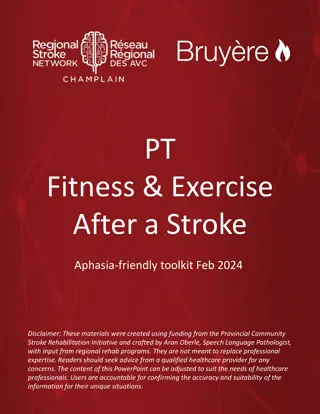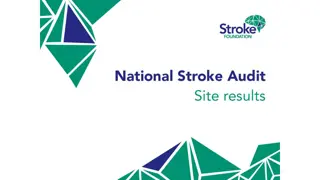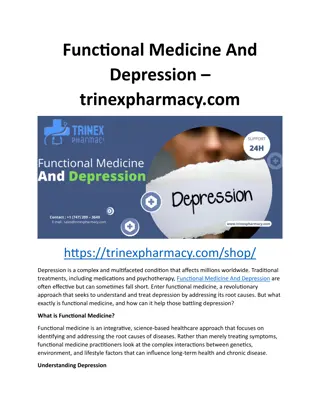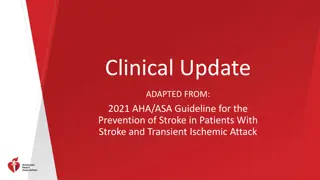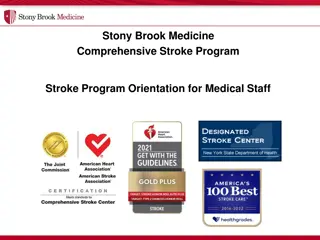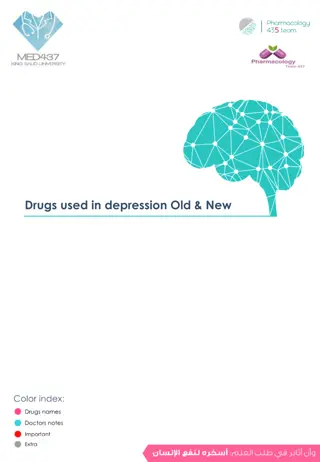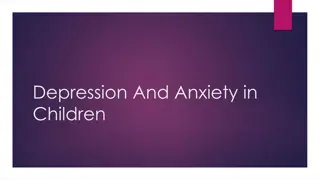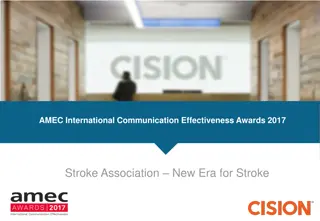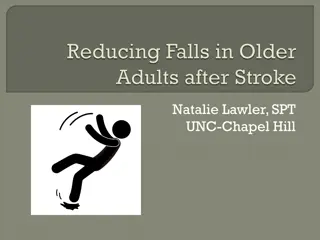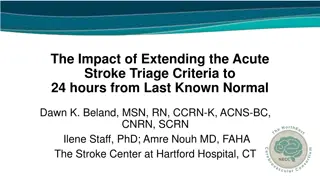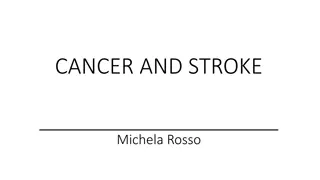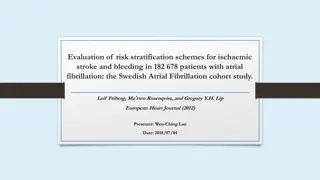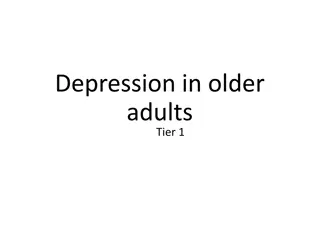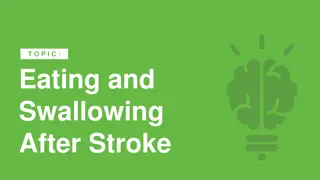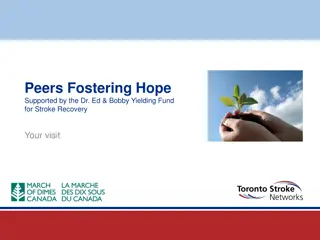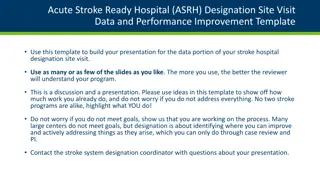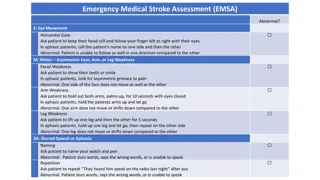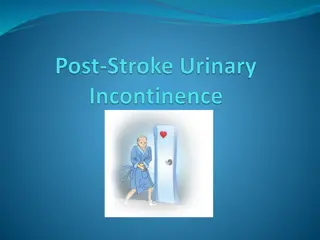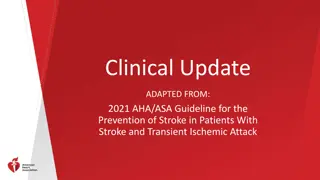Depression After Stroke
Depression after stroke is a common occurrence that can significantly impact an individual's mental well-being. Recognizing the signs early is crucial as it affects how a person thinks, feels, and behaves. Treatment is necessary, and support from loved ones plays a key role in recovery. Learn about the symptoms, risks, and ways to provide assistance to those experiencing depression after a stroke.
Download Presentation

Please find below an Image/Link to download the presentation.
The content on the website is provided AS IS for your information and personal use only. It may not be sold, licensed, or shared on other websites without obtaining consent from the author.If you encounter any issues during the download, it is possible that the publisher has removed the file from their server.
You are allowed to download the files provided on this website for personal or commercial use, subject to the condition that they are used lawfully. All files are the property of their respective owners.
The content on the website is provided AS IS for your information and personal use only. It may not be sold, licensed, or shared on other websites without obtaining consent from the author.
E N D
Presentation Transcript
T O P I C : Depression After Stroke
Depression After Stroke 1 in 3 people will experience depression after stroke Is a mood disorder that can occur following an injury to the brain Can affect how an individual thinks, feels or behaves Does not go away on its own and requires treatment 2
Depression After Stroke What you should know: Early recognition is key! Risk is greatest in the first 3-6 months Signs of depression can be mistaken for the effects of stroke or aging Signs of depression can also be overlooked or missed when a person has difficulty speaking or thinking Depression is treatable with medications and/or counselling Can affect a person s quality of life and ability to enjoy activities Risk of depression increases at times of change 3
Depression After Stroke Smart Tips: Look for Signs of Depression: Feeling hopeless, helpless or worthless Feeling sad, anxious, irritable or angry Loss of interest and withdrawal Appetite, weight and sleep pattern changes Headaches, chronic pain, digestive problems 4
Depression After Stroke Look for Signs of Depression: Fatigue/lack of energy Memory, concentration problems, confusion and slow thoughts Difficulty making decisions Thoughts of death, dying or suicide 5
Depression After Stroke Consistent routine Help the person plan and structure Encourage participation in activities of interest Encourage the person to share their feelings Listen actively and offer support Always be hopeful 6
Depression After Stroke Educate the person and their family about depression Remind them that depression is a medical illness Learn how to communicate with people who have aphasia 7
Depression After Stroke Seek extra support Look for signs and symptoms of depression and report any differences in mood to your team Refer to a health care provider with the ability to assess and treat depression Get help immediately if a person is talking about death, dying or suicide Smart Tips for Stroke Care (2023) was created by members of the Regional Stroke Networks of Ontario. This material may be shared without permission from the authors, without changes and with source credited. 8
